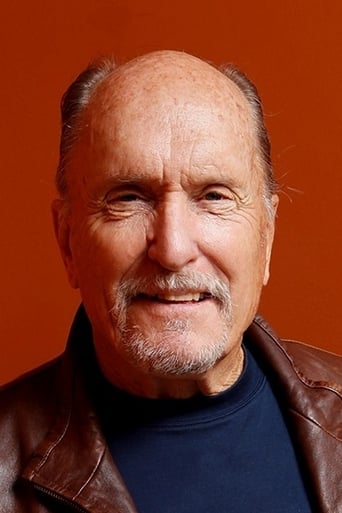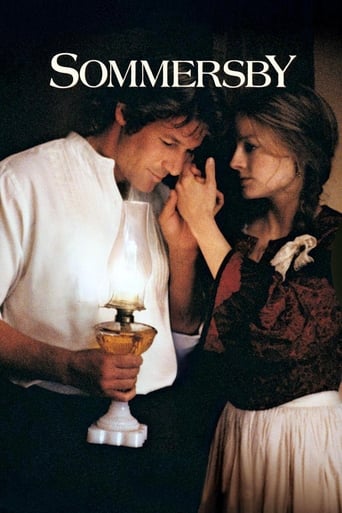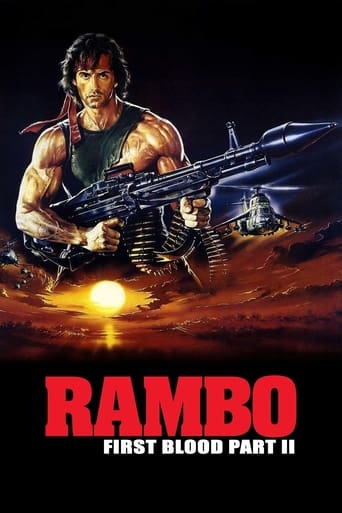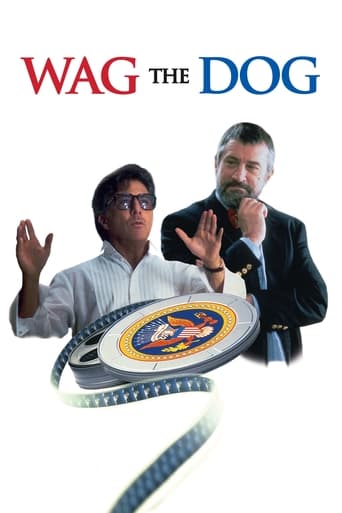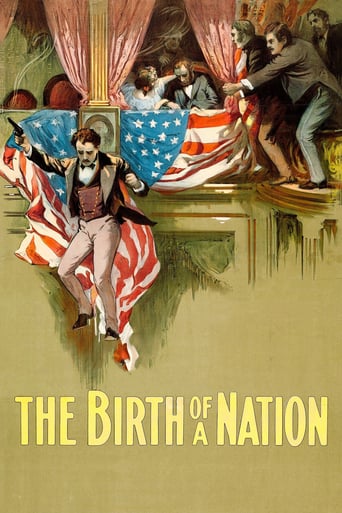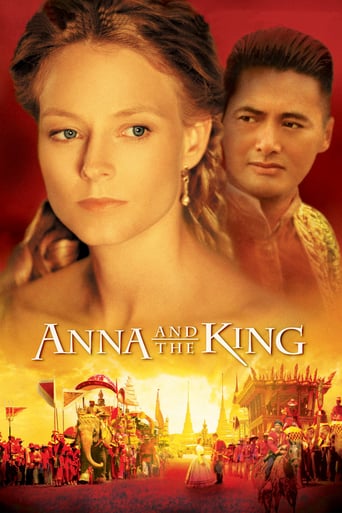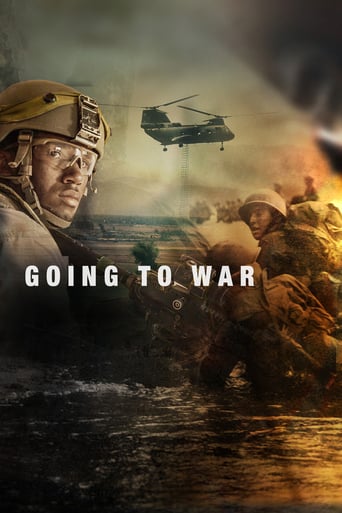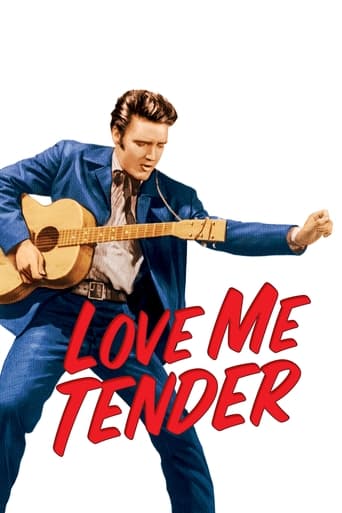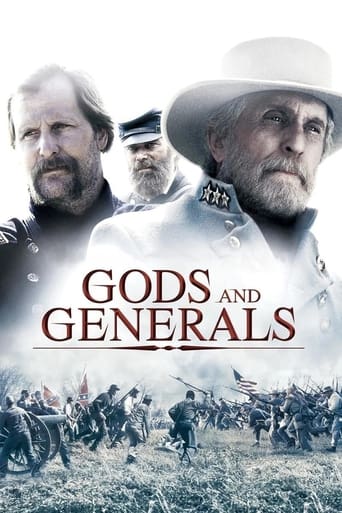
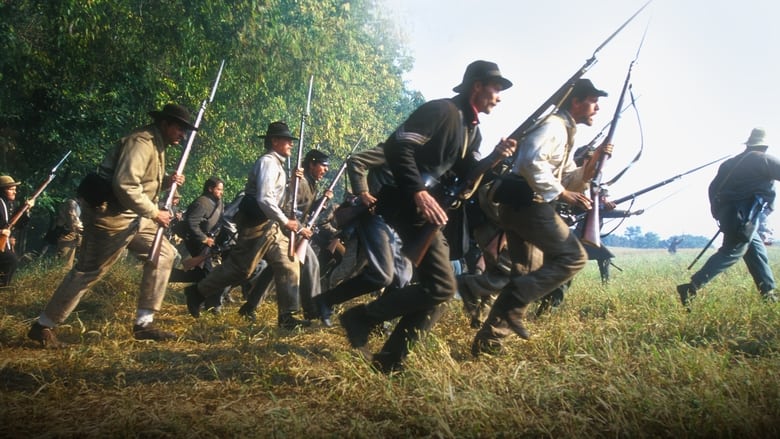
Gods and Generals (2003)
The film centers mostly around the personal and professional life of Thomas "Stonewall" Jackson, a brilliant if eccentric Confederate general, from the outbreak of the American Civil War until its halfway point.
Watch Trailer
Cast
Similar titles
Reviews
I'll tell you why so serious
best movie i've ever seen.
The performances transcend the film's tropes, grounding it in characters that feel more complete than this subgenre often produces.
A story that's too fascinating to pass by...
Originally published on Feb. 14, 2003This Robert F. Maxwell-directed Civil War epic is the second of a trilogy (after 1993's "Gettysburg," while "Last Full Measure" is scheduled to conclude) chronicling this country's most devastating conflict. And, while a bit over long (at 3 and-a-half hours) as well as a bit preachy in parts - and it could have been titled "The Stonewall Jackson Story," the picture is often engrossing and powerful. The battle scenes, which accurately depicted the insane tactic of marching directly into enemy rifle and cannon fire unblinkingly, are some of the best this scribble has witnessed. Movie begins with the Confederates firing on the Federal Fort Sumter in 1861 and depicts U.S. Army Col. Robert E. Lee (Robert Duval, Oscar winner for "Tender Mercies") turning down command of the Northern Army of the Potomac. He later becomes the leader of the Army of Northern Virginia. There are three main battles featured here: the first battle of Manasas (called Bull Run by Northern writers, July, 1861), Fredericksburg (December 1862) and Chancellorsville (May, 1863), all Confederate victories utilizing Lee's tactical brilliance as well as the invaluable assistance of his most trusted and able cavalry general, Jackson (played wonderfully by Stephan Lang, Gen. George Pickett in "Gettysburg," but best known as Ike Clanton in "Tombstone"). Lee realized that a long war of attrition would favor the North, which could call upon a population of approximately 20 million, as well as a huge industrial advantage. The South had just six million people, including three million slaves whom they would never arm. He also understood the art of maneuvering his troops and diving his forces to his advantage. And, much like Napoleon, scored victories while tremendously outnumbered. Quick and decisive wins were needed to throw the industrial Union into a panic and make the citizens less hungry for war while attracting possible aid from European nations. Jackson understood these tactics, as well, and used them to brutal effectiveness. He was fearless, too, earning his nickname at Manasas, standing like a stone wall before his retreating men and rallying them to victory. Both he and Lee attended West Point (when CSA Pres. Jefferson Dave was James Buchanan's Secretary of War) and learned strategy not only from Napoleon, but Wellington and Frederick the Great, among other brilliant military leaders. During the first two years of the war, the generalship and élan of the South scored triumph after triumph in the Eastern Campaign, while Federal leaders such as Gen. George B. McClellan and other lesser known men (such as Ambrose Burnside and George Meade, among others) just sat on their hands - much to Pres. Abraham Lincoln's ire. Jackson, as portrayed by Lang, was a complex and nuanced man of religious piety who abhorred the institution of slavery yet fought for the cause to sustain it. His relationships with his men, his wife and the daughter of a friend, Jane Corbin (Lydia Jordan, "Third Watch" TV series) betray a sensitive individual who seems woefully out of place in this great conflagration. His tactics, however, were second to none and who knows what his death (at the hands of his own troops shortly before Gettysburg) mortally hurt the Confederate cause.
Director Ron Maxwell's "Gods and Generals," the prequel to "Gettysburg," appears far more polished than his initial American Civil War movie. In "Gettysburg," lots of critics carped about the bogus beards that the actors sported, principally Tom Berenger's Longstreet. Maxwell made sure that his prequel didn't suffer the same fate in the facial hair department. Indeed, the beards look far better. Indeed, lenser Kees Van Oostrum's widescreen cinematography looks immaculate as does most of the sprawling sets. Of course, the Virginia Military Institute looks contemporary for its day because dirt has been put down to cover the asphalt road. Nevertheless, despite the sheer brilliance of this lengthy spectacle, "Gods and Generals" has some problems that some Civil War buffs, particularly historians, may not charitably tolerate. For example, the film refuses to address the issue of slavery, and most of the slaves seem more reminiscent of the loyal slaves from "Gone with the Wind" and "So Red the Rose" era. Basically, this epic war movie was designed to showcase Confederate General Robert E. Lee, Confederate General Thomas 'Stonewall' Jackson, Union General Winfield Scott Hancock, and Union Lieutenant Colonel Joshua Chamberlain. Maxwell devotes the bulk of the film to Jackson, and Stephen Lang performs splendidly in the role as the pugnacious but religious leader who died accidentally at the hands of his own men.. Robert Duvall replaces Martin Sheen, but Duvall resembles Lee more than Sheen. The action unfolds with Lee's refusal to take Abraham Lincoln's offer to command all Union forces. Lee explains to Preston Blair that he cannot take up arms against his home state of Virginia. Meantime, Jackson serves as an instructor at VMI when he notices cadets tearing down the Union flag. Later, at the Virginia secession convention, state officials vote to secede from the Union and they offer Lee the job of commanding all their troops. Naturally, Lee accepts this offer without a qualm. When Maxwell shifts his attention to the North, he takes us to Maine, where Joshua Lawrence Chamberlain explains his views about the complicated issue of slavery to his class at Bowdoin College. This is Chamberlain before he entered the Union Army, and this time around we meet his concerned wife, Frances Caroline 'Fanny' Chamberlain (Oscar winning actress Mira Sorvino). Unlike "Gettysburg," women play a larger role in this Civil War film.The film takes place between April 1861 and May 1863, and Maxwell depicts the battles of First Manassas, Fredericksburg and Chancellorsville, and concludes the action less than two months before Gettysburg. This magisterial film will no doubt be a chore to sit through, but it does have its rewards. If you don't know much about the Civil War, prepare to be changed. For example, one seasoned military officer shows Chamberlain and his brother the proper way to load a musket, using a nine step method. This same officer impresses upon Chamberlain the necessity for rigorous discipline and training so the soldiers can responds to commands in an expeditious manner. If you saw "Gettysburg," you will learn, too, how the Chamberlains met Sergeant Buster Kilrain (Kevin Conway) and came to be fast friends. Most critics lament the long speeches, but this is a chessboard movie. Unfortunately, Maxwell is probably more ambitious than he should be and the narrative becomes quite unwieldy at times.
Any intelligent person knows that truth has many sides and Gods and Generals shows the many sides of a conflict. It shows the reasons why men would risk their lives in a war which would devastate innocent families and whole communities. The only thing that I did not like about this film was the overly long dialog and monologues. I understand the need to have each character vocalize what is going on but I felt there could have been more in the way of physical acting and less in the very long and almost Shakespearean soliloquies. The battles are fantastic and the extended version has the battle of Sharpsburg which was the bloodiest day in the history of America.You get an insight to the brave men who would march hundreds of miles away from their homes to fight to protect their families. The story focuses mostly on the Confederates who were fighting on the home soil and often time within sight of their actual houses. I wish the film would have covered the Valley Campaign more, but at nearly 4 hours it is long enough. People often wonder why Confederates are represented so often in film. It is because they have a dash about them an old world chivalry as well being the ones on whose soil the battles were fought. They also had the best generals tactically and daringly speaking. Stonewall Jackson's Valley Campaign is still taught in military academies around the globe and Robert E Lee is revered in countries all over the world. This film might be long, but it does not disappoint when it comes to the battles. While not filmed on location like Gettysburg, it does not really lose anything. Gettysburg had famous locations such as Devils Den and the stonewall which needed to be included. Other than Fredericksburg most of the battles took place in normal fields and woods. It is a great film and one worth multiple viewings.
I'm a huge Civil War buff and I really enjoyed Gods and General...the novel.Unfortunately, the film was just a rambling mess that tried to introduce too many characters and tell too much of a complicated war. This film tried to be a drama, a biopic, and a war film among other things. Had they just focused on Stonewall Jackson, the film may have worked, but instead, they tried to follow the pattern of Gettysburg by telling as many sides as possible. Trying to tell three years of history proved to be too much. The result was that much of the history was left untold and too many of the characters were given too little screen time to adequately unwrap them.We don't ever see the important battles that occurred on the Peninsula, 2nd Manassas, or Antietam. The portrayals of many of the important figures is well-done. Robert Duvall is a big improvement over Martin Sheen, Stephen Lang does a good job as Stonewall...but the performances aren't enough to make the film worthwhile. However, the dialog was very archaic and grandiose; there are long monologues where a character will pray or talk at length about something. I get that this is to impart the deep religious convictions, but its overdone and it become tedious.I suppose you could watch the 5-hour director's cut...if you really want to sit on the couch for five hours.



